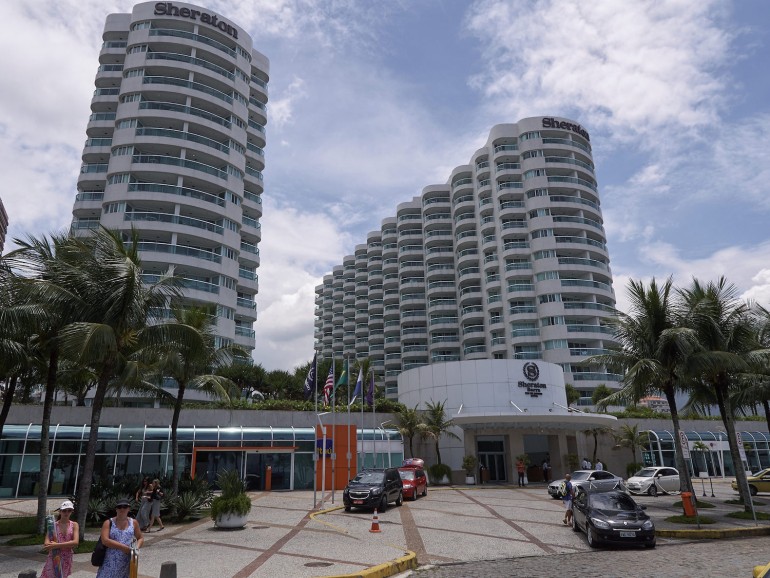Sponsored Listings:
RIO DE JANEIRO, BRAZIL – According to recently released figures from the Brazilian Hotel Industry Association (ABIH) and the Brazilian Travel Agents Association (ABAV), demand for hotels and travel packages for Rio de Janeiro’s two biggest events of the year, New Year’s Eve and Carnival, are showing steep declines compared to the same time last year.
In an ABIH survey, hotel reservations for both events are currently down 50 percent when compared to last year. For ABAV, things are even bleaker, with the number of packages booked for New Year’s Eve and Carnival 2018 only a third of what they were at the same point last year.
“We have seen a general reduction in the demand for tours in Rio in general,” said Nohelia Sanchez, co-founder of travel and tourism agency RdJ4U, to The Rio Times. “We work with tours and activities in all South America and Rio is practically the only destination that is presenting a drastic drop in their bookings.” Sanchez noted that her figures are in line with ABIH and ABAV, with her Rio bookings down 56 percent compared to last year.
Industry professionals link the sharp reduction to a combination of factors such as the economic crisis and security concerns coupled with the doubling of available hotel rooms in the run up to both the 2014 World Cup and Rio 2016 Olympics. Currently, some hotels in Barra, where the largest expansion of hotels took place due to its proximity to many of the Olympic venues, are sitting with a 3 percent occupancy rate.
“The situation in Rio and the country has deteriorated a lot since the Olympics,” explained Alfredo Lopes, ABIH president, to Globo news. “Security is a concern, of course. But the perception today is worse than the reality. The great effort we are trying to put forth is because we had a huge legacy with the Olympics that put Rio on display to the world. We will lose this.”
“After the Olympics, the hype of Rio was down,” Sanchez added. “I believe it was a mix of bad press alongside the political situation of the country.”
Adding to the uncertainty are recent reports indicating that Rio’s mayor, Marcelo Crivella, has proposed fifty percent cuts in subsidies for samba schools preparing for next year’s Carnival. The news prompted several samba school representatives to threaten to cancel the mega-spectacle.
“Rio has suffered from the fiscal crisis, the recession and the effects of the political crisis,” exclaimed Cristina Fritsch, president of ABAV. “We lack a view of tourism as a major economic power industry, generating jobs and income. If the carnival in 2017 was worth R$3 billion, as Riotur stated, the city is not communicating this.”
According to Riotur, this past 2017 Carnival drew more than 1.1 million tourists and R$3 billion to Rio alone. In addition, over 94 percent of foreign tourists surveyed during the event said they would return to Rio and 91.9 percent would recommend the city to their friends.
Sоurсе: riotimesonline.com










